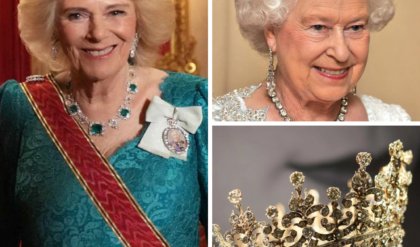The Walt Disney Company, a cornerstone of global entertainment, has faced mounting criticism in recent years for its relentless focus on live-action remakes of animated classics. From The Little Mermaid to Snow White, these projects have sparked controversies over casting, narrative changes, and perceived disrespect for the original films, leading to a growing chorus of fans worldwide demanding that Disney pivot back to its roots in animation. The 2025 live-action Snow White, which grossed a mere $194.7 million globally against a $410 million budget, has become a lightning rod for this sentiment, with fans on platforms like X and industry analysts arguing that Disney’s live-action slate is diluting its legacy. This article explores the reasons behind fans’ calls for Disney to prioritize animated films, the controversies fueling this movement, and the potential implications for the studio’s future, drawing on web sources and social media sentiment.
The Live-Action Remake Backlash: A Growing Fan Revolt
Disney’s live-action remakes, which began gaining traction with Alice in Wonderland in 2010, have been a financial juggernaut, with films like Beauty and the Beast (2017) and The Lion King (2019) grossing $1.3 billion and $1.6 billion worldwide, respectively. However, critical and fan reception has been mixed, and 2025 has proven particularly disastrous. The live-action Snow White, starring Rachel Zegler, became a focal point of fan discontent due to its narrative overhaul, which shifted Snow White from a romantic heroine to a feminist leader, and its controversial CGI depiction of the Seven Dwarfs. Variety reported a $215 million loss, while posts on X, such as one from @TrueJMitchell, highlighted fan frustration with Disney’s “undermining everything that made the original iconic.”
Other recent remakes, like Mufasa: The Lion King and Pinocchio (2022), have also faced criticism for lackluster visuals and unnecessary changes. CBR noted that Pinocchio’s excessive CGI made characters “lifeless,” while The Lion King (2019) was criticized for its “hyper-realistic” animals lacking the emotional expressiveness of the 1994 animated classic. Fans, such as @Seddochan on X, have called for Disney to “re-release theatrical editions of the original animated films” instead of producing “soulless live-action remakes” that fail to capture the originals’ charm. This sentiment reflects a broader rejection of Disney’s remake strategy, which many see as prioritizing profit over creativity.

Controversies Fueling Fan Discontent
Several high-profile controversies have amplified fans’ demands for Disney to abandon live-action remakes. One major issue is the perception that Disney is altering beloved stories to align with modern sensibilities, often at the expense of their fairy-tale magic. Snow White’s reimagining, which Zegler described as moving away from “dreaming about true love” to focusing on leadership, drew ire for dismissing the 1937 film’s themes. The Miami Student quoted professor John Tchernev, who noted that Zegler’s “flippant” comments alienated fans who cherished the original. Similarly, The Little Mermaid (2023) faced backlash for casting Halle Bailey as Ariel, with some fans arguing it deviated from the animated character’s appearance, though others praised the diversity.
Casting decisions have been a lightning rod for debate. Inside the Magic reported fan outrage over rumors of “race-swapping” in projects like a potential live-action Tangled, with speculation about Avantika Vandanapu as Rapunzel sparking heated discussions. While Disney’s efforts to diversify casts, such as Bailey’s Ariel and Zegler’s Snow White, aim to reflect modern audiences, The Guardian argued that these choices often feel “performative” when not paired with culturally sensitive storytelling. For instance, Mulan (2020) was criticized for filming in China’s Xinjiang region, accused of human rights violations, and for lacking a Chinese perspective in its production, per TFR.
The depiction of characters like the Seven Dwarfs in Snow White also ignited controversy. After criticism from actor Peter Dinklage about perpetuating stereotypes, Disney replaced dwarf actors with CGI “magical creatures,” a move that CBR noted disappointed the dwarfism community for reducing representation. Fans on X, including @Ridliscot, celebrated Disney’s apparent “reculating” from such decisions after Snow White’s failure, urging sustained criticism to push the studio back toward animation. These missteps have fueled perceptions that Disney’s live-action remakes are more about appeasing cultural trends than honoring its legacy.
The Case for Animation: Nostalgia and Artistic Superiority
Fans argue that Disney’s strength lies in its animated films, which have defined its brand since Snow White and the Seven Dwarfs in 1937. MovieWeb highlighted the studio’s pioneering role in animation, noting that classics like Beauty and the Beast and The Lion King remain timeless due to their “beautifully-crafted” visuals and heartwarming narratives. Animation allows Disney to create fantastical worlds unconstrained by the limitations of live-action, such as the need for hyper-realistic CGI animals or culturally accurate settings. Collider argued that films like Oliver & Company and Pocahontas are better suited to animation, where their expressive styles avoid the pitfalls of live-action realism.
Nostalgia plays a significant role in fans’ preference for animation. CBR noted that Disney’s animated classics, accessible via Disney+, are deeply tied to fans’ childhoods, with characters like Cinderella and Simba evoking powerful memories. A Newsweek poll found that 36% of respondents wanted Disney to focus on new stories, while only 20% supported live-action remakes, reflecting a desire for original animated content over reboots. Fans like @ThatElfNerd on X criticized Disney for avoiding “new boundaries” in favor of “safe” live-action remakes, suggesting that animation offers greater creative freedom.
Disney’s recent animated efforts, such as Encanto and Turning Red, have been praised for their diversity and innovation, countering the narrative that animation is “just for kids.” Daily Bruin highlighted Encanto’s Academy Award-winning success and its representation of a Colombian family, showing animation’s ability to tell culturally rich stories. Theorangutanlibrarian emphasized that animation is a “medium for art,” citing Studio Ghibli and Spider-Verse as examples of its potential, and urged Disney to leverage this over live-action.
Disney’s Strategic Missteps and Fan Fatigue
Disney’s focus on live-action remakes has been driven by financial incentives, but ScreenRant argues that this strategy is faltering due to “superhero fatigue” and oversaturation. The studio’s 2023 losses, estimated at $900 million by Forbes, and Snow White’s 2025 flop have prompted CEO Bob Iger to reassess the slate. Inside the Magic reported that Iger confirmed the cancellation of weaker projects, with new studio president David Greenbaum prioritizing films that “need to exist.” This shift suggests Disney is responding to fan backlash, though upcoming remakes like Moana and Lilo & Stitch indicate live-action persists.
Fans argue that Disney’s live-action focus dilutes its brand. Hourloop noted that remakes are often seen as “recycled material” for profit, with Beauty and the Beast’s $1.2 billion gross overshadowing its mixed reviews. The Miami Student suggested Disney prioritizes quantity over quality, risking the “integrity of the story.” The studio’s reliance on CGI, criticized in The Little Mermaid for “decimating” characters’ charm, further underscores animation’s advantage in conveying emotion and fantasy.
The Path Forward: A Return to Animation?
Fans’ demands align with Disney’s historical strengths. MovieWeb traced Disney’s shift from 2D to 3D animation, noting that films like Toy Story and Frozen thrived due to technological innovation. Wish (2023), blending 3D characters with watercolor-style backgrounds, was a nod to Disney’s 2D legacy, though its modest performance suggests a need for bolder originality. Fans propose remaking lesser-known animated films like Atlantis: The Lost Empire or Treasure Planet, which ScreenRant argued could benefit from modern animation techniques without the baggage of rehashing classics.
Disney’s animated successes, like Inside Out 2 ($1.6 billion globally), demonstrate the enduring appeal of original animation. Business Insider noted that such hits contrast with 2025’s live-action failures, suggesting a strategic pivot could restore fan trust. However, Newsweek reported that 28% of fans want a mix of new stories and remakes, indicating some appetite for live-action if executed thoughtfully. Disney’s challenge is balancing nostalgia with innovation, a feat animation is better suited to achieve given its flexibility and emotional resonance.
Conclusion
Global Disney fans are rallying for the studio to refocus on animated films, driven by frustration with live-action remakes’ controversies and perceived lack of magic. From Snow White’s financial and critical flop to broader issues of cultural insensitivity and creative missteps, the live-action slate has alienated many who see animation as Disney’s true legacy. Fans on X and industry voices argue that animation offers unparalleled storytelling potential, free from the constraints of realism that plague live-action. While Disney’s leadership shows signs of course-correcting, the persistence of projects like Moana suggests live-action remains a priority. For Disney to reclaim its “most magical place on earth” status, it must heed fans’ calls to prioritize the art form that made it a legend: animation. By investing in original animated stories and reimagining overlooked gems, Disney can restore its creative spark and honor the legacy that has captivated generations.





